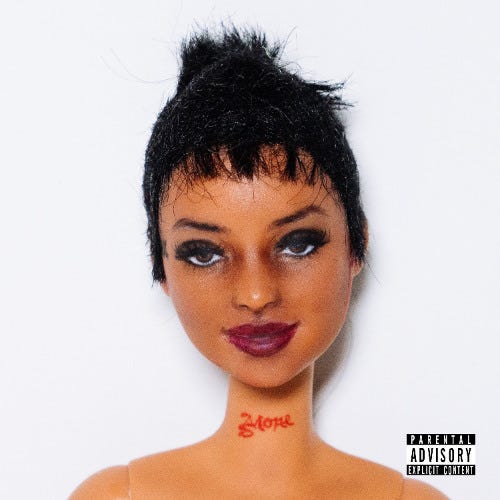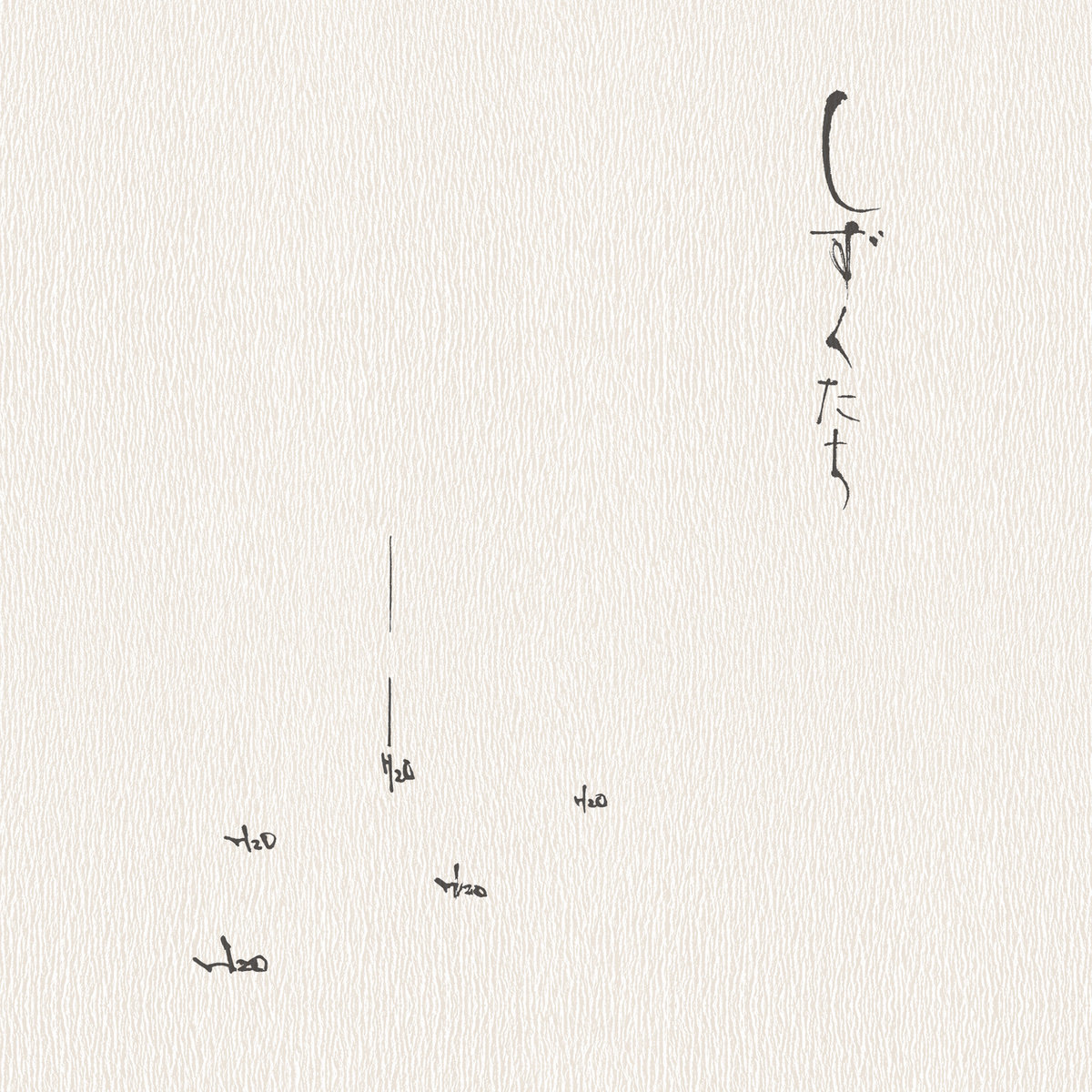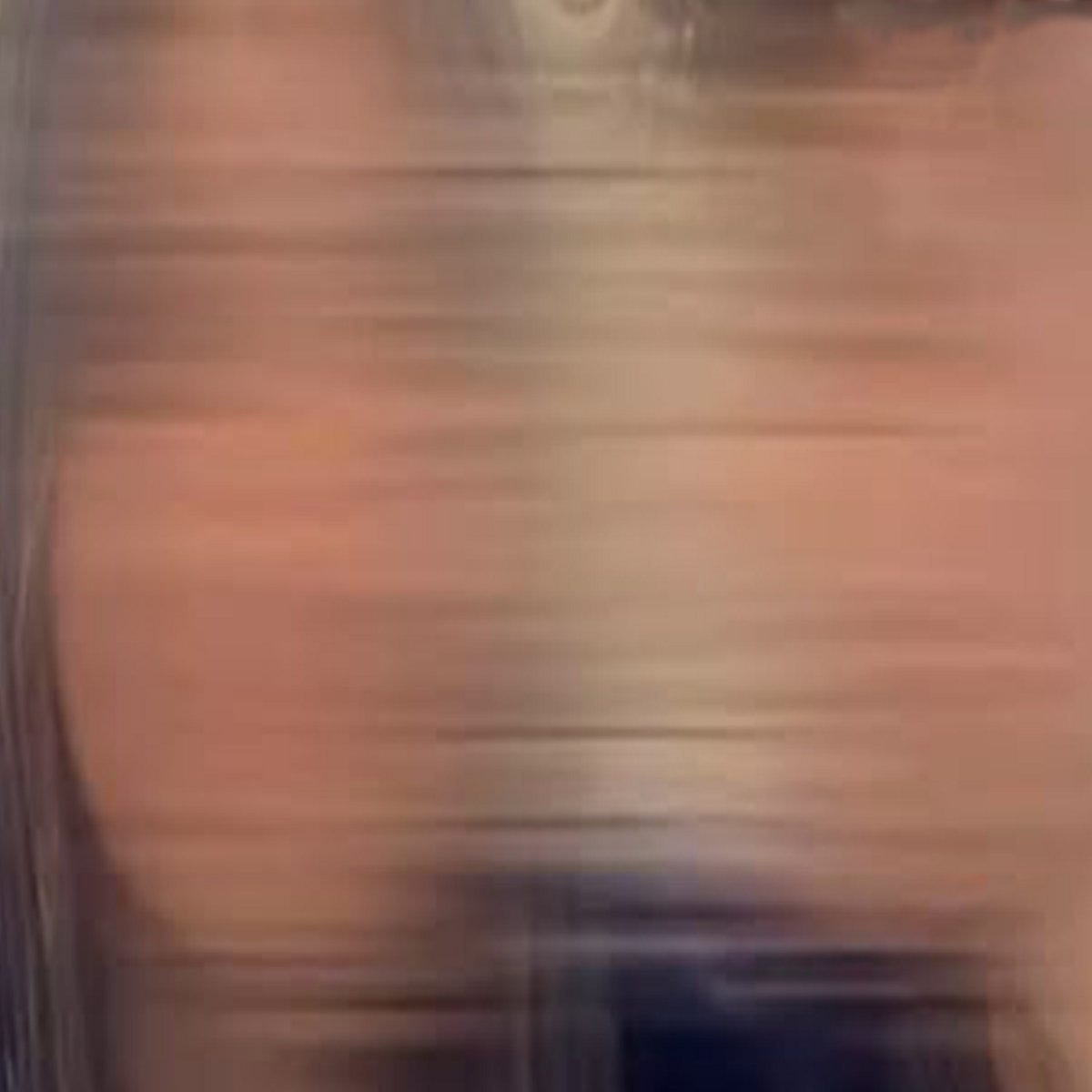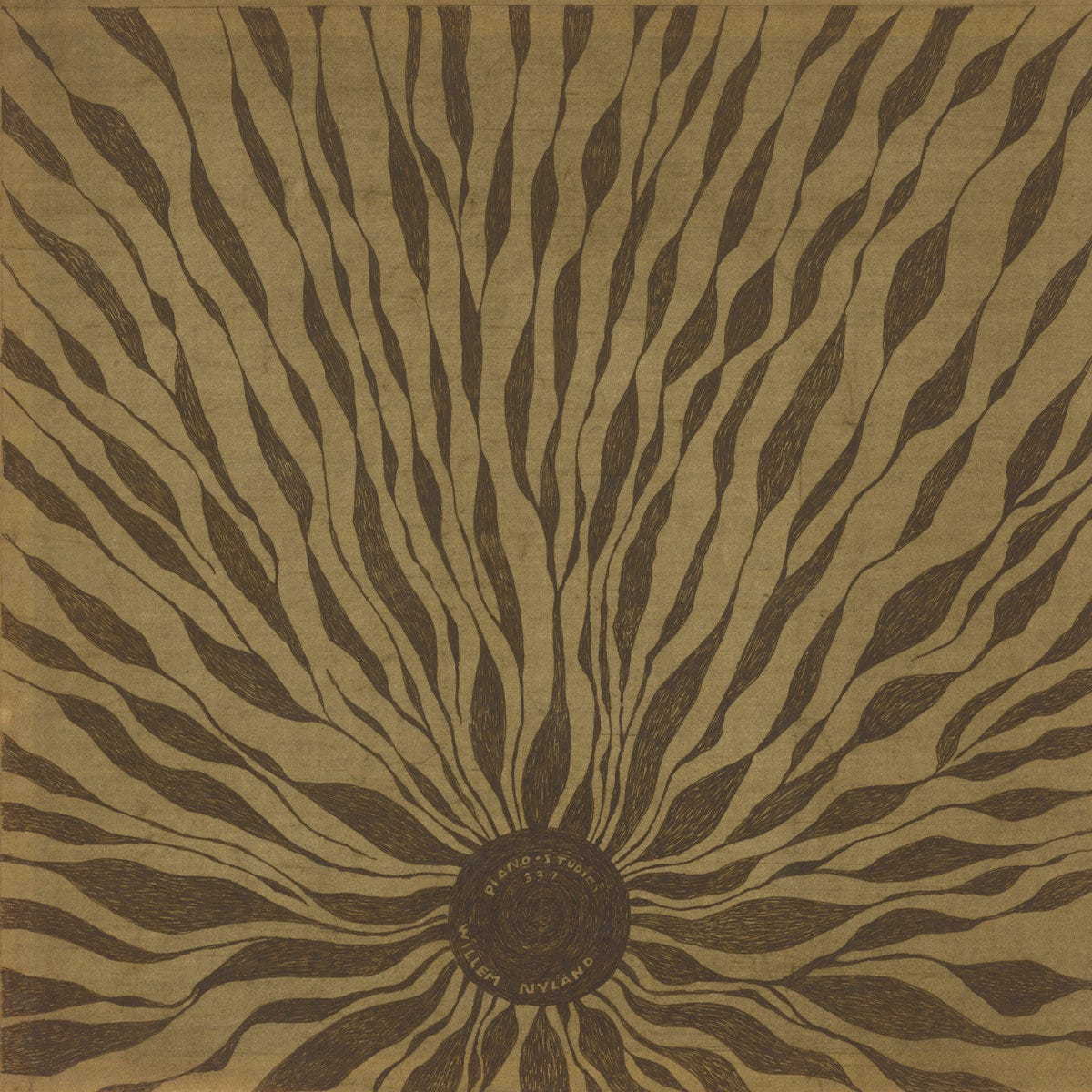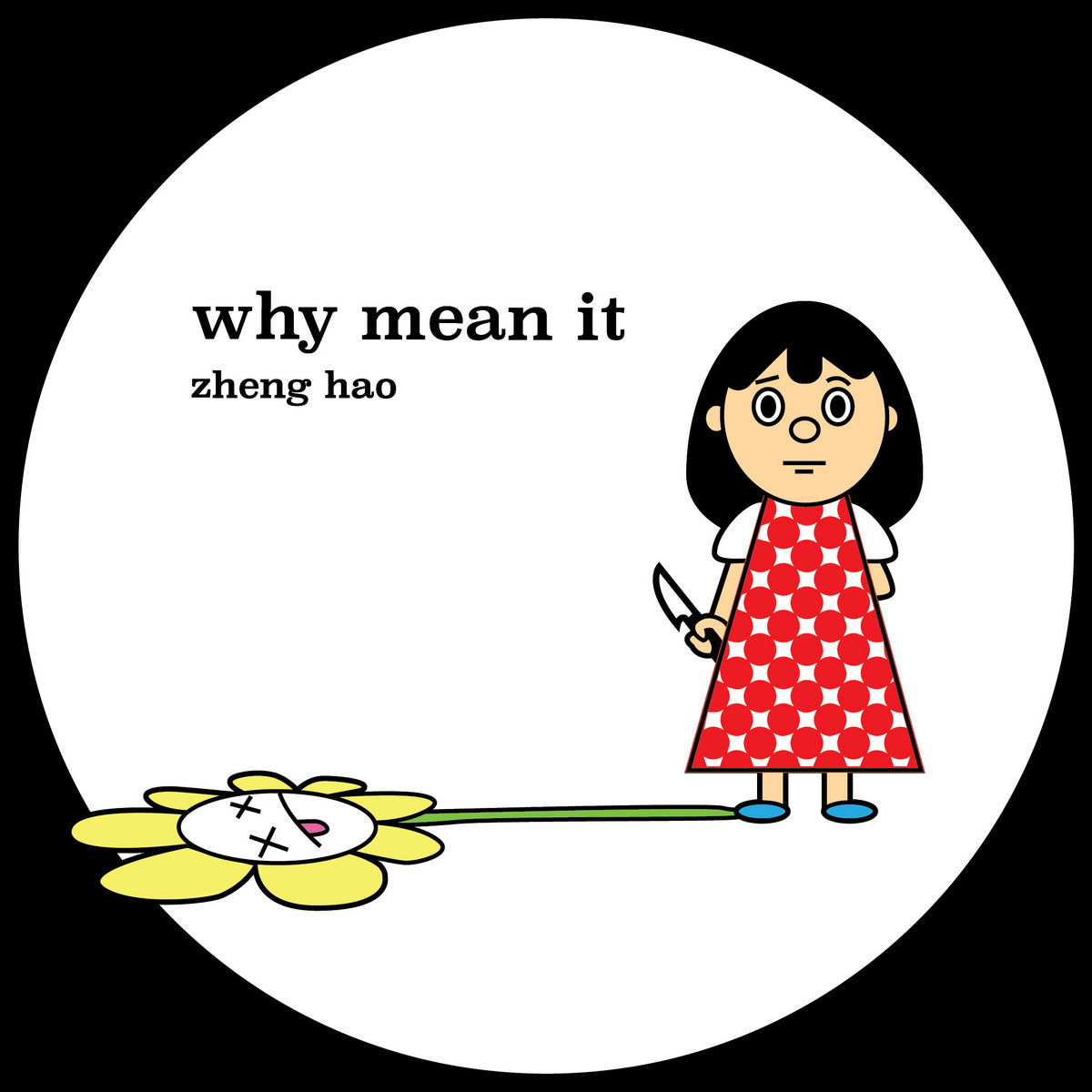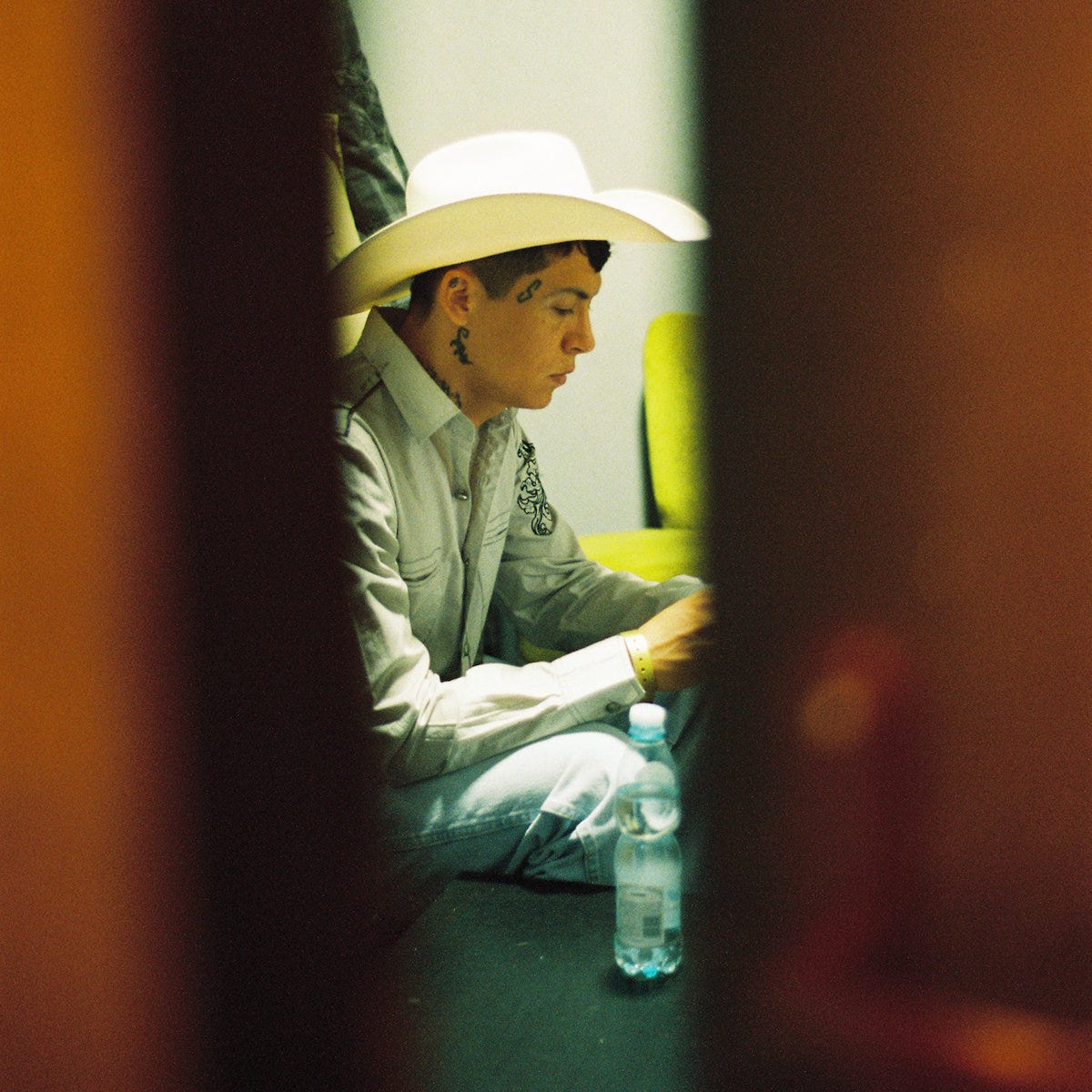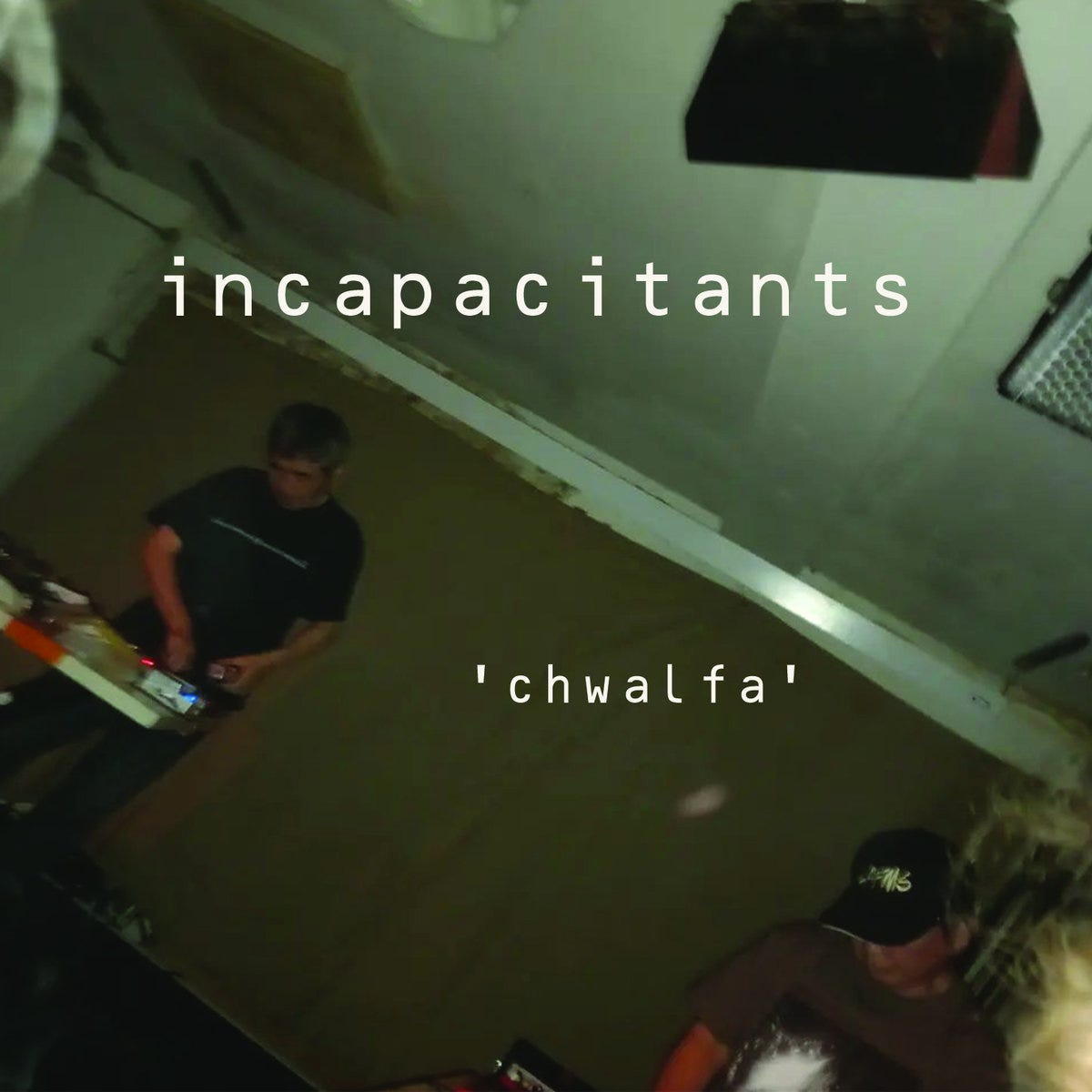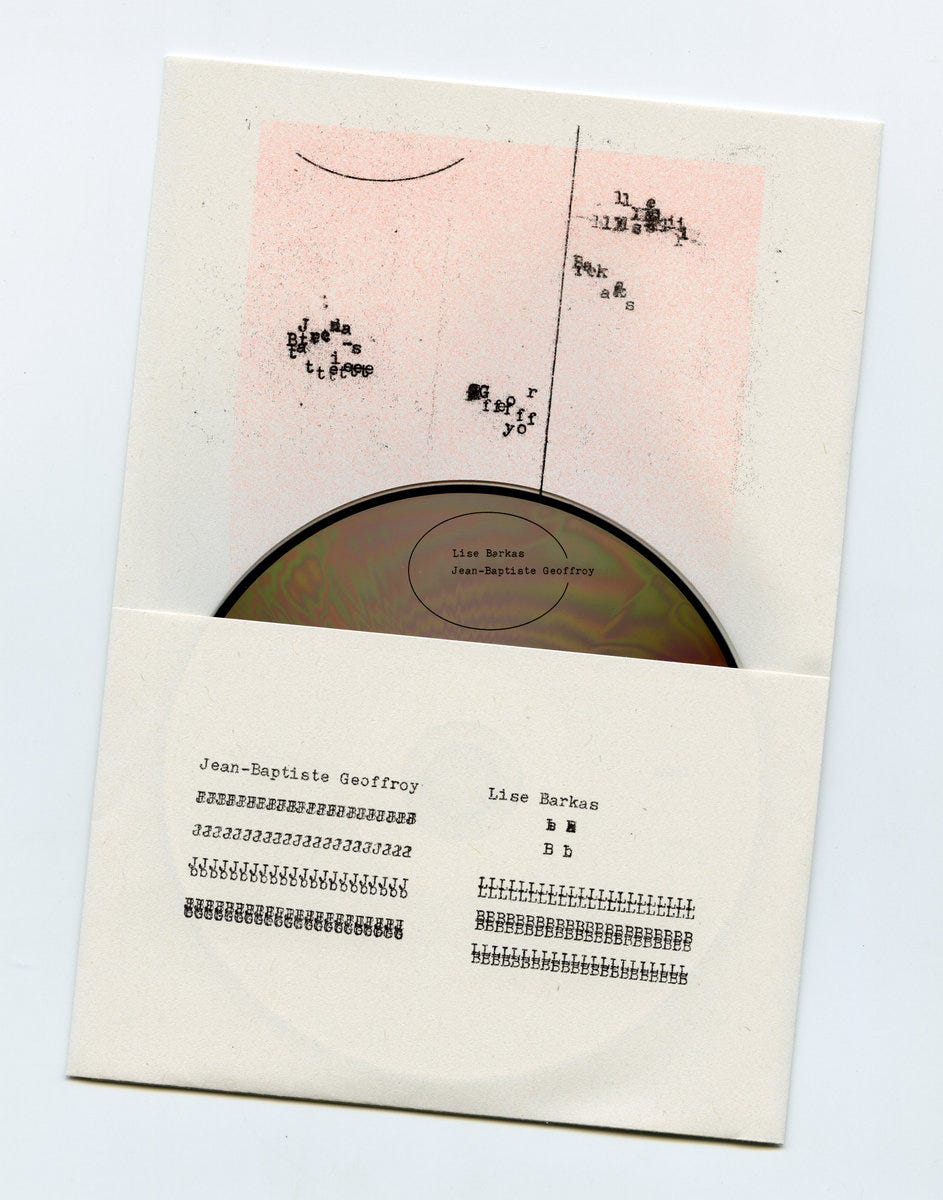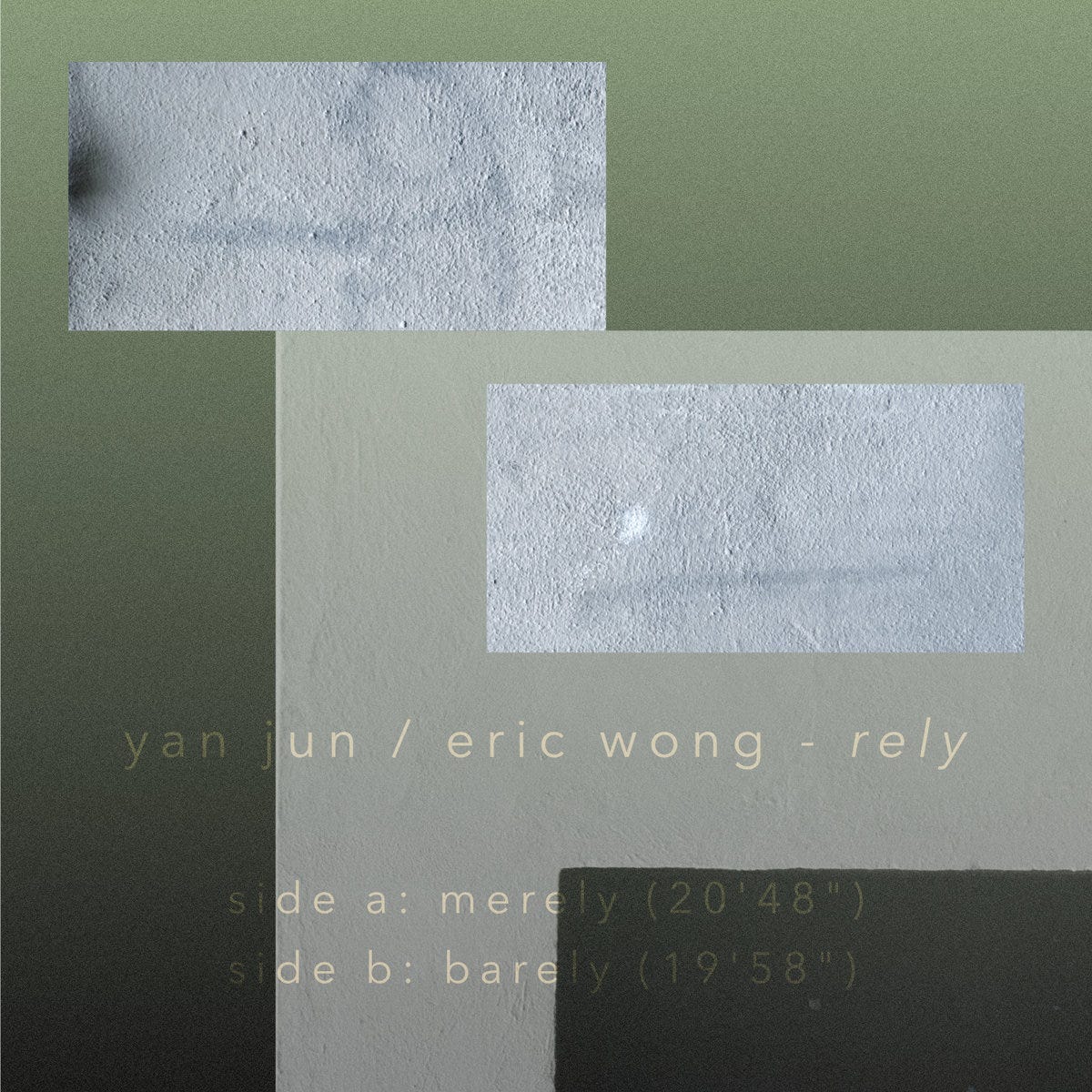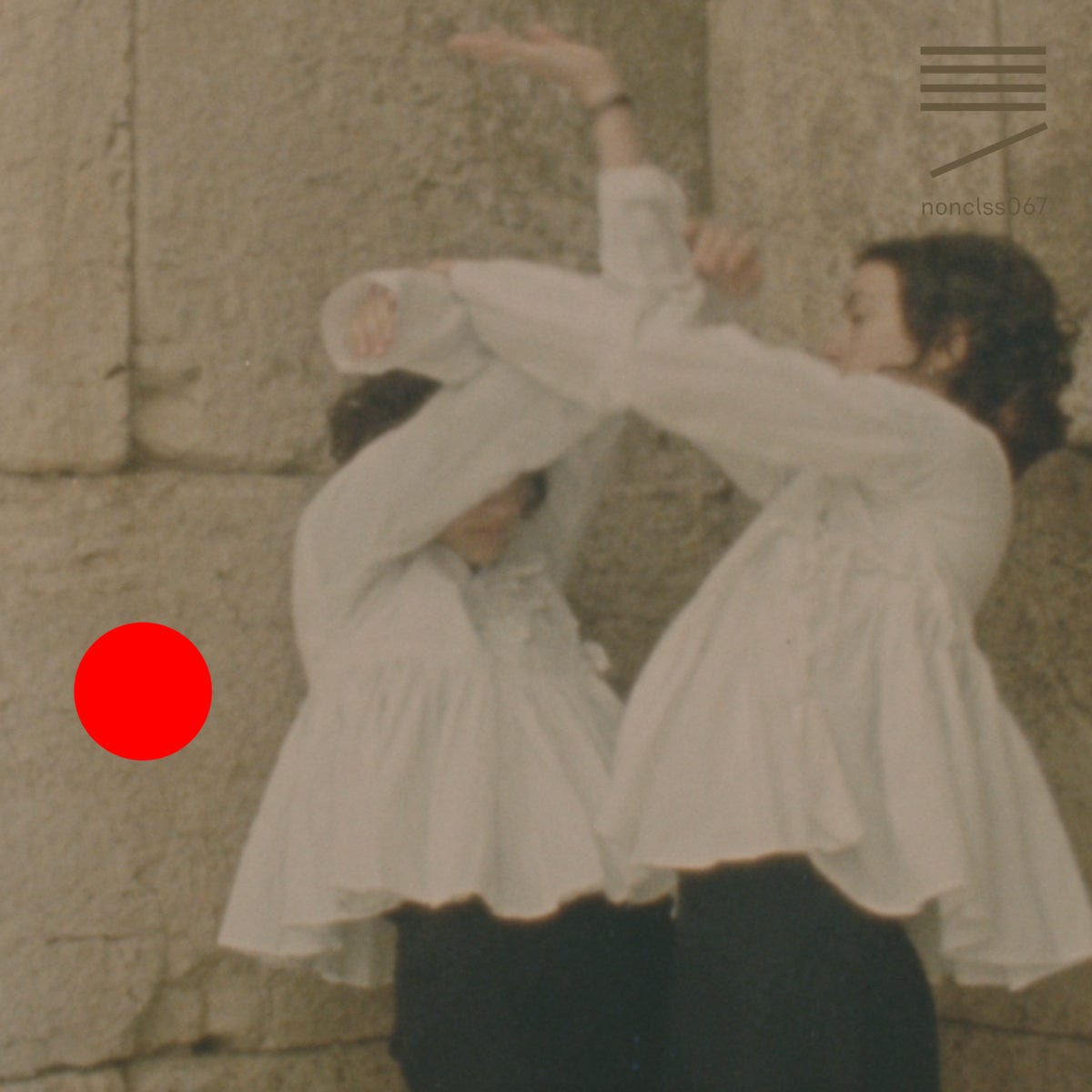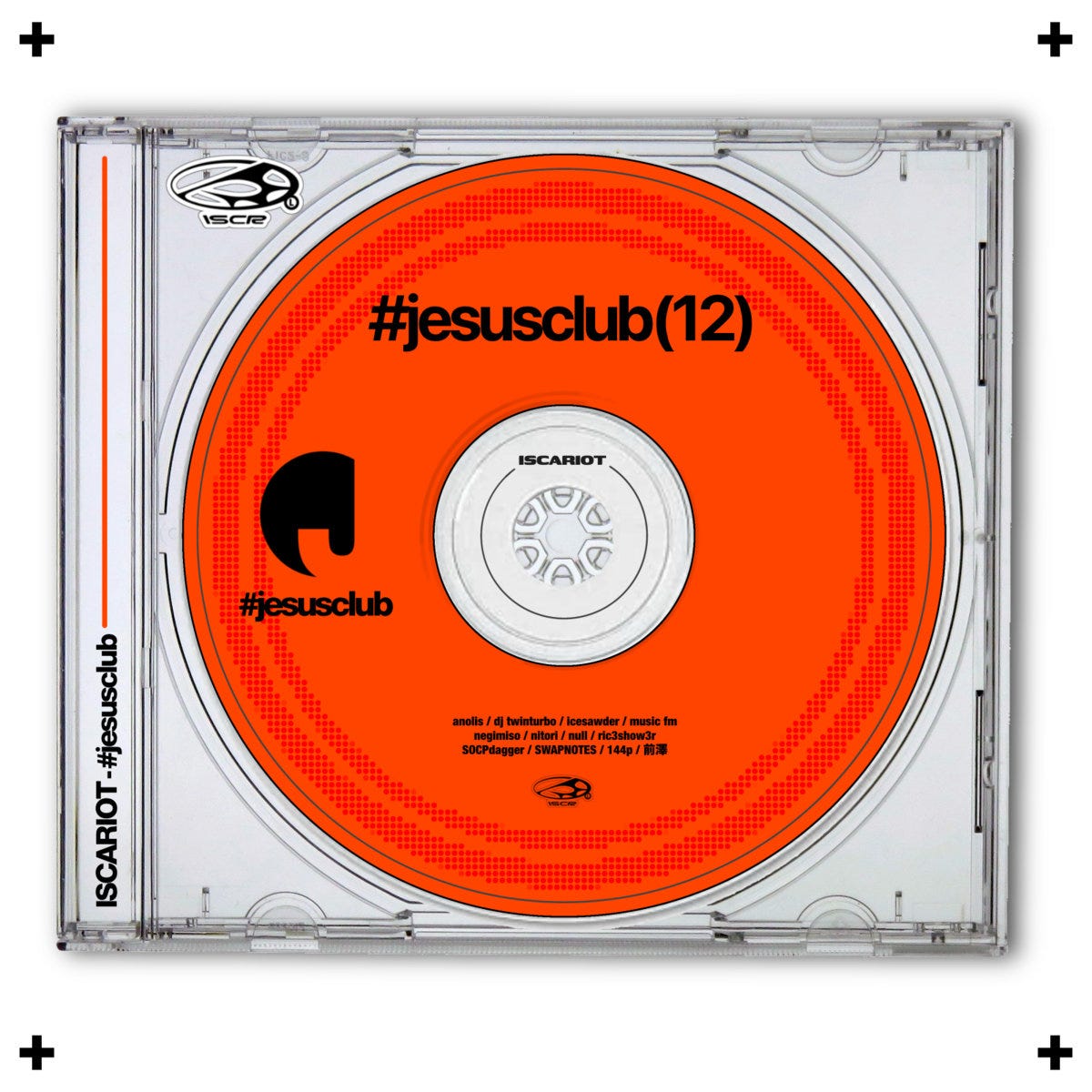
I was planning on waiting until the end of August/beginning of September to do a round-up of July and August releases. But there were enough new releases I felt compelled to write about that I ended up hitting critical mass a few weeks earlier. Maybe I've just been enjoying myself a bit more this past month or so. Regardless, this means the next issue will cover August in its entirety, plus whichever additional months pass by between this round-up and the next (again: no schedule promises). Here's fourteen blurbs, mostly for releases that came out between July and the first week of August 2025; I also cover a few stragglers from earlier in the year that I hadn't gotten (or figured out how) to write about yet.
Effie - E (A Mass Culture, Mar 28)
One of the best hyperpop releases of the year so far. I don't think I've heard one from a Korean artist with this level of polish and variety before; the memetic cloud rap-adjacent stuff has been around for years at this point, and of course K-pop has picked up many of the genre's inflections and production ticks. But E reminds me most of the Japanese hyperpop scene, which has found an ideal balance between microgeneric tropes (the AutoTune, the stutter, the genre blending, etc.) and a more refined pop production (see also my blurb on #jesusclub(12) at the very bottom of this list). This is no coincidence, as the primary producer for this album, kimj, has worked in frequent collaboration with Japanese hyperpop artists; see also the Manaka feature on track one. E is a remarkably solid run from start to finish, but some standouts include "코카콜라 [Coca-Cola]"—a subdued paean to a crush with a subtle drill pattern (and later, a garage chorus) that's undergirded by languid guitarwork; "kancho," a more emphatic and topline-heavy drill ballad; and "maybe baby," whose electroclash-revival piano stabs and bass 'n' halftime drops during the chorus make for a ridiculously efficient hit of dopamine.
[PSA: Effie's latest single, "CAN I SIP 담배," endorses smoking. With prominent adlibs by Korean children's television icon 코코몽 [Cocomong], the threat this poses to the youth cannot be underestimated. This incident is reminiscent of Lilniina's "cigirl," another Asian hyperpop song that promotes smoking. Data shows that "cigirl" is responsible for a statistically significant uptick in Japanese zoomers' cigarette consumption. We must stop Effie before she wreaks the same calamity upon the lungs of the young citizens of the Korean nation.]
Baby Osamaa - Enjoy the Ride (Tank Girl/Cavity, May 16)
As I mentioned in my Chow Lee blurb from the second DAA round-up, I'm interested in whether or not the big names of sexy drill c. 2022 - 24 can move beyond the formula in a meaningful way. Baby Osamaa's latest is a certified success—while ostensibly a retreat from a now-oversaturated microgenre to the more straight-ahead synth-heavy trap that characterized her work prior to SEXC SUMMER, the songwriting and hooks on Enjoy the Ride are far sharper here than on the older stuff. What I appreciated about SEXC SUMMER wasn't the sexy drill-isms so much as it was the emotional and melodic heft that Baby Osamaa brought to that sound, and it turns out the latter translates perfectly well into a less codified pop rap medium. Most (t)rappers are better served by the occasional ballad, whose overindulgence typically leads to drags in the pacing of a record; Baby Osamaa, however, brings more to the table with her approach to trap balladry: no matter how intoxicating or layered the synths get, her toplines ring clear and inflect each track with its own subtly different rhythm and flow, which prevents their blurring into homogeneity. It all goes down like cotton candy; "This for You Baby," in particular, is one of the most moving pop songs I've heard all year.
高野昌昭 / Masaaki Takano - しずくたち / Shizukutachi (宮長 / Miyanaga, 1978 | Art Into Life, Jun 8)
Another banger of a reissue from Art Into Life, whose archival work over the past few years (especially their Anne Gillis reissues) have brought me great joy. The surreal clarity of the sound environment Takano presents on Shizukutachi is utterly transfixing; listening to water drip on this record is as beautiful and haunting an experience as listening to your own heartbeat in an anechoic chamber.
erisan - University of Love OST (bistro, Jun 23)
I don't know if a film exists for which this "OST" is the soundtrack (if you're the artist, let me know!) But I find the high-octane pathos that University of Love conjures up oddly compelling, even as it more or less approximates the conventionally cinematic. It has a timbral palette of synthpad-adjacent VST strings with wildly exaggerated attacks and the sustain turned up to eleven; shots of laser-bass perforate the haze every now and then, anchoring the music at its dramatic peaks. Tracks alternate between swooping passages of tonal sublimity and more restrained moments of dissonant ambiguity. The movie playing in my mind sort of resembles Aggro Dr1ft—except even further removed from this plane of existence: the infrared bled out and the rhythm faded away, dissolved into the unpredictable drifts and punctuations of dream-time.
Willem Nyland - Piano Studies 337 (Gage Hill, 1962 | Mississippi, Jul 11)
I'm a fan of what I'll tentatively call "unschooled" piano music: stuff that isn't entirely separate from either the classical or improvisatory tradition in terms of form, but whose genesis and development occur in semi-independent contexts and according to the artist's conception of their practice as something singular in its method and/or purpose; Charlemagne Palestine and Lubomyr Melnyk come to mind. This reissue by Mississippi Records of Willem Nyland's Piano Studies 337 is a surefire addition to this canon (that I made up). By definition, any of its given members has no strict stylistic relation to another, even if you might be able to shoehorn them under the minimalism umbrella. It's not difficult to imagine Nyland's music in its ritual context, as part and parcel of Gurdjieffian/Fourth Way spiritualism in the same way that Scriabin's music offers itself as a setting for Theosophical revelation. The purported importance of the relation of the cover illustration to the music points to another possible common trait of Theosophy and the Fourth Way: namely, a synesthetic bent that ties sound, shape, and color together in ways whose significance aspires beyond mere association and toward some kind of truth (see Besant and Leadbeater's Thought-Foms). In any case, there's a strong current of Romantic pianism that courses through Nyland's improvisations—both in terms of its harmonic progression and with respect to its lyricism, which rises to the top of even the stormiest passages in order to make itself heard; this is also Scriabin-esque. All this makes for a robust impression of heightened naturalism, à la the relation of impressionism to realism. This music is a river that ebbs and flows; its seductive power lies in the sense that it began to run well before you got here, and that it'll keep running long after you leave.
Éric La Casa/Jérôme Noetinger - Off Tracks (Erstwhile Records, Jul 15)
I hereby bestow upon Off Tracks the DAA award for "Best Room Tone Album of the Year." La Casa is an unparalleled field recordist for his ability to capture the spectral ambience and living energy of a space; pairing him with Noetinger, whose practice revolves around tape manipulation of the live sound that his collaborators provide—be that electronics, instrumentation, or found object play and improvisation—is a brilliant choice. La Casa's recordings constitute material with far more negative space than the sort that Noetinger tends to work with, and so the synthetic operations at play here are much subtler than usual; one can sense the canvas folding and rippling here and there, but the traces of these actions are muted, like creases that appear momentarily in the fabric before smoothing out again. If these gestures were over-obvious, they would create a certain redundancy—a legibility whose impression would obscure the presence of the space being observed. Off Tracks, instead, produces a compelling amplification of spatial presence whose distortions seem perfectly organic and natural.
Zheng Hao - why mean it (self-released, Jul 17)
Exemplary of the playfulness I find so appealing in Chinese experimental music, whether from China or from Chinese musicians abroad (typically in London). Text-to-speech has enjoyed wide use in different corners of experimental music and film over the past several years—some forms of which have congealed into trope. why mean it is fun because it's interested in exploring the prosody of text-to-speech/TTS as such, rather than as a shortcut to a particular sort of affect. To this end, a lot of these songs come off as sound poems of a traditional avant-garde ilk in their structured repetition and variation: we get classic examples of iterative phonetic-semiotic shapeshifting on "why mean it" and "italo, calvino"; alphabetic recitation on "learn to text" and "hhxxx"; progressive disintegration and deconstruction on "kimberly, your voice" and "baby times 5"; etc. Except for that now, instead of analog/tape recorder processing and artifacts, we have the N64 port: it's got a similar bag of basic operations, but with a very different gamefeel—plus a few other bells and whistles (the drum patches on "T" and "hhxxx" left me rofl). I would insert a newer console into my joke, but it's interesting to me that the technology here sounds older than it actually is, according to the liner notes. When we write and listen for communicative speech and dialogue using TTS, our brain can smooth over a lot of the artifice it recognizes in favor of naturalized perception. But when it comes to the human voice as sound, maybe we still have some ways to go.
Chuquimamani-Condori - Edits (self-released, Jul 18)
If you've been keeping up with the DJ mixes that C-C (fka Elysia Chuquimia Crampton) has cooked up over the past several years—constituting some of their best work—then this is a superb treat. I especially love their takes on pop country: tracks 17 and 18 (the Parker McCollum and Dylan Marlowe remixes), which close out this mix they made for NTS last year, have been on heavy rotation for me for over an year now. Taken together with 2020's Selected Demos & DJ Edits, these "versions" (I don't know of a better umbrella term) provide the most comprehensive testament to the omnivorous ingenuity and imagination of C-C both as a listener and as a craftsperson.
Incapacitants - Chwalfa (OTOROKU, Jul 25)
A question for the ages: why does Incapacitants sound better than 99% of all other noise music, even over 40 years after they first began? It's powerful and imbued with soul in a way that's difficult to pin down. The liner notes say it's like free jazz… I don't know if I buy that. But I do think that there's a degree of differentiation within these pillars of sound that's reminiscent of the supercharged conflictual tension at the core of the best (and heaviest) free improvised music. I haven't seen Incapacitants live, but as someone who's been to at least two life-changing noise shows in my life, I'm confident that there's no substitute for it.
Lise Barkas & Jean-Baptiste Geoffroy - Choisir D'épaule (Hideous Replica, Jul 31)
What a feast! If you prefer your drone and spine-tingling electroacoustics to come in somewhat sharp or funky flavors, you won't be disappointed; this is for all the timbre fiends out there.
Yan Jun & Eric Wong - rely (Infant Tree, Jul 31)
A follow up of sorts to dichotomic language, which Yan and Wong put out last year. rely works with the same sound materials but feels more focused than that record: there's a more sustained and deliberate counterpoint between Yan Jun's vocalizing and Eric Wong's sine tones, resulting in a greater sense of the cumulative construction of an intensive sound environment that envelops the listener.
Tara Cunningham - Almost - Not Exactly (Nonclassical, Aug 1)
Five miniatures to tickle your eardrums. Has a subdued approach to beatcraft and glitch that reminds me of Lolina, or the stuff she's put out via Relaxin Records.
Sunik Kim - Formenverwandler (Feedback Moves, Aug 1)
It's difficult for me to say much about Sunik's music that isn't already encompassed by the thinking and writing that accompanies their work. In addition to the liner notes for this record, I'd also recommend their piece on Nancarrow for The Wire—which you can find on p. 6 of this document they compiled of their writing from 2020 to 2024—as well two extensive conversations: this Invisible Jukebox-style back-and-forth they had with Vincent Jenewein for the latter's Substack, Infinite Speeds, and this unorthodox "interview" they did with John Wall for Tone Glow. These are the foremost concrete points of reference that inform my understanding of their latest project; the latter two, especially, are most evocative of the universe of reference and connection that makes up the friendship I've sustained with them over countless conversations. All I want to say in this blurb is that Formenverwandler is the album of theirs that, in the clearest manner so far, makes me feel the way I did when I discovered Nancarrow myself: exhilaration in the face of the absurd; vertigo-inducing oscillations between a perspectival totality of overwhelming proportions and humbling encounters with the simplicity of the raw material; and the sense of time as a dialectical movement that can unexpectedly resolve from one opposite into another—e.g. in an acceleration from hyperspeed into slower blocks of motion, or in a disintegration out of near-stasis into an open pit of sheer velocity.
Various Artists - #jesusclub(12) (Iscariot, Aug 8)
Probably my favorite dariacore/hyperflip release of the year so far. Like any number of internet pop microgenres, hyperflip rapidly reached a saturation point of caricatural exhaustion; the stuff that stands out often does so for its refinement toward a more polished presentation rather than unapologetic overstimulation. #jesusclub(12)'s contributors apply craft and care toward genuinely translating the songs and samples they work with into a fully fleshed out grammar of hyper-/internet club; the results are simply delectable. Definitely check out the Jason Derulo flip.
Thank you for reading! Wishing everyone strength. ‘Til next time…



